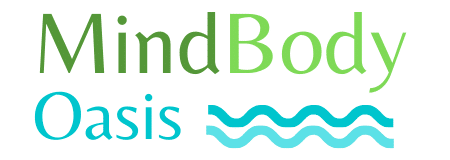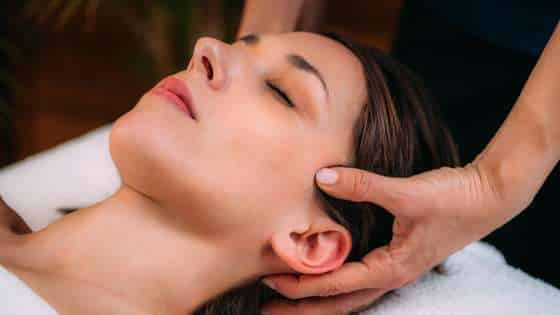Introduction
In today’s fast-paced, high-pressure world, stress and anxiety have become unwelcome companions in many of our lives. From the constant buzz of social media, the pressure to keep up with societal expectations, to the fear-mongering of the news cycle that paints a bleak picture of the world, it’s no wonder that anxiety and stress are on the rise. Our minds are overwhelmed, our bodies burdened, and many of us are seeking ways to heal from this growing epidemic.
While there are many methods to manage stress and anxiety, one holistic therapy is gaining recognition for its profound impact: Reflexology. This ancient practice not only eases physical tension but also touches the deeper layers of our emotional and spiritual being. In this article, we’ll explore the powerful role reflexology plays in calming the mind, soothing the body, and restoring balance—helping us reconnect with our inner peace and joy amidst the chaos of modern life.
Understanding Reflexology: Beyond a Physical Practice
Reflexology is a therapeutic touch practice based on the idea that specific areas of the feet, hands, and face correspond to different organs and systems of the body. By applying gentle pressure to these reflex points, a skilled reflexologist helps to stimulate the body’s natural healing processes, ease tension, and restore harmony.
But reflexology goes beyond the physical. It taps into the flow of energy within the body, which is often blocked by stress, anxiety, or emotional turmoil. Through this energetic healing, reflexology works to open pathways, release pent-up emotions, and foster a sense of deep relaxation and connection with oneself. It is a practice that not only nourishes the body but also tends to the mind and spirit.
The Stress of Modern Life: Why Are We So Anxious?
- Media-Induced Fear: Every day, we are bombarded with negative news stories. Whether it’s global conflicts, economic downturns, or social unrest, the media thrives on feeding fear into our lives. This constant exposure can make the world feel unsafe, contributing to chronic stress and heightened anxiety
- Consumerism and Comparison Culture: We live in an age where we are continuously encouraged to want more – more material possessions, more success, more validation from others. Social media has only intensified this “comparisonitis,” where we measure our lives against the highlight reels of others. This creates feelings of inadequacy, leading to stress as we strive to “keep up with the Joneses.”
- The Pressure to Always Be Better: In modern society, we are conditioned to believe that we are not enough. There’s always a pressure to be more successful, more productive, more beautiful. This creates a never-ending cycle of striving, leaving us depleted, anxious, and disconnected from our true nature as an individualised expression of divine, universal energy manifested in physical form.
But beneath all of these societal pressures, the truth remains that spiritually, we already have everything we need within us. We have the capacity for joy, peace, and fulfilment – but these qualities can be clouded by stress and anxiety. Reflexology, with its holistic approach, helps us tap into this inner well of serenity, allowing us to reconnect with our core and feel whole again.
How Reflexology Helps Tackle Stress and Anxiety
The soothing power of reflexology comes from its ability to calm the nervous system and bring the body back into a state of balance. Here’s how reflexology works its magic in reducing anxiety and stress:
- Stimulating the Happy Hormone Cocktail (DOSE): Reflexology has been shown to activate the release of our natural feel-good hormones: dopamine, oxytocin, serotonin, and endorphins (DOSE). This “happy cocktail” is essential for balancing our mood, uplifting our spirit, and counteracting the physiological effects of stress. Through gentle pressure and touch, reflexology helps trigger the release of these hormones, improving our emotional well-being and creating a sense of bliss and calm.Scientific Evidence: Studies support these claims. For example, a 2011 study published in the Journal of Alternative and Complementary Medicine found that reflexology significantly reduced anxiety in patients undergoing heart surgery. Participants who received reflexology treatments experienced reduced heart rates and lower anxiety levels compared to those who didn’t receive the treatment. This finding reflects reflexology’s power to not only relax the mind but also physically regulate the nervous system.
- Calming the Nervous System: Reflexology primarily works on the parasympathetic nervous system—our body’s “rest and digest” response. It helps to shift us away from the fight-or-flight mode that is so often triggered by stress and anxiety. This deep relaxation helps to soothe frazzled nerves and promote a sense of safety, allowing the body to heal and regenerate.A 2002 study published in Complementary Therapies in Nursing and Midwifery revealed that reflexology reduces anxiety and improves the overall well-being of cancer patients. The patients who received regular reflexology sessions reported feeling more calm and relaxed, demonstrating the therapy’s ability to address both physical and emotional stress.
- Tackling the Physical Manifestations of Stress: Chronic stress often manifests physically in ways we may not even realise. Many people suffer from digestive issues (such as IBS), unexplained weight fluctuations, poor sleep, chronic fatigue, and an overactive or anxious mind. Reflexology addresses these physical symptoms by stimulating reflex points that correspond to the organs affected by stress. For example, reflex points for the digestive system can help ease bloating, cramping, and discomfort associated with stress-induced IBS.Reflexology also improves sleep patterns. By calming the nervous system and stimulating specific reflex points, the body moves into a state of relaxation conducive to restful sleep. Those with insomnia or disrupted sleep cycles often report that regular reflexology treatments help them fall asleep more easily and stay asleep longer.
- Providing a Spiritual Reset: Reflexology is more than just a physical practice – it’s also a spiritual experience. By tapping into the body’s energy flow, reflexology can open up pathways of healing that extend beyond the physical. When we experience deep relaxation, we enter a state of “spiritual flow,” where our resistance, fears, and mental blockages dissolve. In this state, we are better able to access clarity, handle challenges, and find creative solutions to our problems.This spiritual component of reflexology allows us to connect with our higher selves, experience true relaxation, and remember that we are complete just as we are. It helps us clear away the mental clutter and self-imposed limitations, creating space for inner peace and deep fulfilment.
The Power of Touch: Energy Healing Through Reflexology
The profound sense of relaxation that reflexology offers can be attributed not only to the physical pressure applied to the reflex points but also to the energetic exchange that occurs during the session. The simple act of touch can have a powerful impact on the body and mind. Human touch stimulates the release of oxytocin, often referred to as the “love hormone” or the “bonding hormone.” This hormone promotes feelings of trust, connection, and calmness.
In fact, according to a study published in Psychosomatic Medicine, physical touch activates parts of the brain associated with reward and emotional regulation, further proving how powerful it is in reducing stress and anxiety. Reflexology takes this healing touch and amplifies it by working with the body’s energetic pathways, helping individuals restore balance and foster a deeper sense of well-being.
Anecdotal Evidence: The Human Experience
While the scientific evidence supporting reflexology’s benefits is promising, perhaps the most compelling argument for this therapy comes from the countless individuals who have experienced it firsthand. Many people report feeling a profound sense of calm and well-being after a reflexology session. Their testimonials often highlight not just relief from physical ailments but a sense of emotional release and spiritual rejuvenation.
Take Sarah, for example, a busy professional who began reflexology sessions to cope with work-related stress. “I had constant anxiety, couldn’t sleep, and felt like I was always on edge. After just a few reflexology treatments, I felt like a different person. My sleep improved, and I started feeling more in control of my emotions. It was like a reset button for my mind and body,” Sarah shared after experiencing significant relief from her symptoms.
Or another client, Jackie, who only last week reported having 2 great nights of sleep after her Zone Face Lift treatment (which incorporates Facial Reflexology). Not only did her skin feel amazing, but she said she felt the transformation from the inside-out too.
These personal stories show how reflexology can create space for healing on all levels—physical, emotional, and spiritual.
Reflexology: A Path to Inner Peace and Well-Being
In a world filled with constant distractions and pressures, reflexology provides a sanctuary of peace, helping us to reconnect with our true selves. It is an holistic practice that not only alleviates physical tension but also addresses the emotional and spiritual aspects of our well-being. By soothing the nervous system, releasing happy hormones, and unlocking the body’s energy flow, reflexology offers profound benefits for anyone struggling with the weight of modern-day stress and anxiety.
If you’re feeling overwhelmed by life’s demands, consider exploring reflexology as a powerful tool to restore balance, foster relaxation, and reconnect with the deep well of peace within you.

